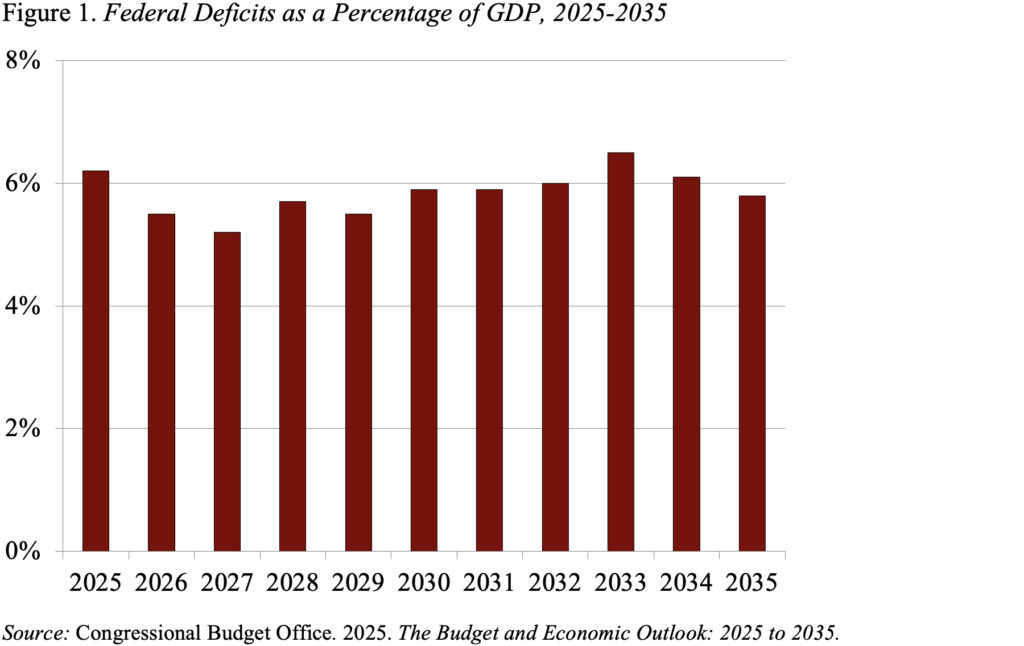Some Say The U.s. Is On The Brink Of A Retirement Crisis. See Whether You Agree -- And What You Want To Do About It.

If you write financial articles for a living, as I do, in the course of your research, you'll likely run across many articles with alarming statistics. It certainly happens to me. Here's a roundup of some worrisome survey results suggesting that a retirement crisis is at hand.
Check out the stats and see what you think -- and then read on to learn how you can avoid being part of the crisis.
Start Your Mornings Smarter! Wake up with Breakfast news in your inbox every market day. Sign Up For Free »
Image source: Getty Images.
Survey says...
Here, then, are a few alarming stats to digest.
A 2024 report from the National Institute on Retirement Security said:
- "When asked if the nation faces a retirement crisis, 79% of Americans agree there indeed is a retirement crisis, up from 67% in 2020."
- "More than half of Americans (55%) are concerned that they cannot achieve financial security in retirement."
- "Regarding Social Security, nearly all Americans (87%) agree Congress should act now to shore up funding rather than waiting ten years to enact a solution."
According to a 2024 report from the National Council on Aging:
- "Over a 20-year period, more than 25% of adults age 50 and over will experience a shock resulting in a 75% or more drop in net wealth."
- "Among adults age 70 and older, more than two-thirds will experience at least one shock with financial consequences over a nine-year period."
- "When it comes to saving for emergencies, around half of older adults lacked the savings needed to respond to an emergency or financial shock in 2022."
It certainly does seem that millions of Americans haven't saved enough for retirement. Consider these numbers from the 2024 Retirement Confidence Survey:
|
Amount in Savings and Investments* |
Percentage of Workers |
|---|---|
|
Less than $1,000 |
14% |
|
$1,000 to $9,999 |
8% |
|
$10,000 to $24,999 |
7% |
|
$25,000 to $49,999 |
7% |
|
$50,000 to $99,999 |
11% |
|
$100,000 to $250,000 |
14% |
|
$250,000 or more |
38% |
Source: 2024 Retirement Confidence Survey. *Excluding the value of a primary home.
The table shows fully 47% of workers with less than $100,000 socked away, and 61% with less than $250,000. Yes, some of these folks are still quite young, but plenty of them are in their 40s, 50s, and 60s, and even $250,000 isn't likely to get most retirees very far. If, for example, your withdrawal strategy is the 4% rule or something like it, a $250,000 nest egg might only deliver around $10,000 in annual income.
Is there a retirement crisis? There certainly seems to be one looming for many millions of Americans.
What should you do?
Unless your retirement is imminent -- and perhaps even then -- there are some things you might do to strengthen your financial condition and deliver a more secure retirement. For example:
Save and invest more
However much you're saving and investing for retirement, aim to save and invest more. The table below might inspire you, showing how much you might amass over time at 8%. (The long-term annual average return of the S&P 500 is around 10%, though it's never guaranteed.)
|
Growing at 8% for |
$7,500 Invested Annually |
$15,000 Invested Annually |
|---|---|---|
|
5 years |
$47,519 |
$95,039 |
|
10 years |
$117,341 |
$234,682 |
|
15 years |
$219,932 |
$439,864 |
|
20 years |
$370,672 |
$741,344 |
|
25 years |
$592,158 |
$1,184,316 |
|
30 years |
$917,594 |
$1,835,188 |
|
35 years |
$1,395,766 |
$2,791,532 |
|
40 years |
$2,098,358 |
$4,196,716 |
Source: Calculations by author.
Saving a lot isn't enough -- you'll also need to invest that money effectively. Unless you're a stock market genius, you might just stick with what Warren Buffett recommends for most folks -- a low-fee S&P 500 index fund such as the Vanguard S&P 500 ETF or SPDR S&P 500 ETF.
Consider delaying retirement
Next, if you're hoping to retire at 62 or 65, consider working a bit longer, if you can. Doing so means your nest egg will have to support you for fewer years, and you can make it a bit larger before retiring. You may also be able to remain on an employer-sponsored health insurance plan for longer, potentially saving more money.
Have an emergency fund
Everyone (except the independently wealthy) should have an emergency fund, with enough accessible cash to keep them afloat for at least three to six months. Your fund should be able to cover non-negotiable costs such as housing, utilities, taxes, food, transportation, and other non-negotiable expenses.
Without an emergency fund, you might end up taking on costly debt or withdrawing funds from a retirement account, both of which can jeopardize your future financial security. If you're busy making debt repayments, that money can't be invested in retirement accounts.
If you remove, say, $20,000, from a retirement account, whether temporarily or permanently, you'll lose out on a few or many years of growth. If that $20,000 could have grown at, say, 8% over 20 years, it could have amounted to around $93,000 -- a sum that could have delivered useful income in retirement.
Make smart Social Security decisions
In case you didn't know, you can claim your Social Security benefits as early as age 62, but your checks will be smaller (though you'll receive more of them). If you delay, up to age 70, your checks will be bigger (though you'll receive fewer, in total). Everyone needs to think through the issue of when to claim Social Security carefully, as the timing can make a big difference in total benefits received.
If you can swing it, consider delaying claiming Social Security until age 70. That's because for most of us, age 70 is the best age at which to claim your benefits in order to maximize them.
Look into setting up multiple retirement income streams
Social Security won't be enough on its own, of course, so aim to have multiple income streams in retirement. Here's how it might look for one person, though there are many possible scenarios:
|
Income Source |
Annual Income |
|---|---|
|
Social Security |
$30,000 |
|
Dividends from stocks |
$20,000 |
|
IRAs and 401(k)s |
$10,000 |
|
Fixed annuity |
$20,000 |
|
TOTAL |
$80,000 |
Chart by author.
Never leave your retirement to chance. Plan for retirement carefully, and don't forget to factor in healthcare costs, too. You might even consult a financial advisor to get confirmation that you're on the right track and/or to get some further strategies for optimizing your retirement.
The $22,924 Social Security bonus most retirees completely overlook
If you're like most Americans, you're a few years (or more) behind on your retirement savings. But a handful of little-known "Social Security secrets" could help ensure a boost in your retirement income. For example: one easy trick could pay you as much as $22,924 more... each year! Once you learn how to maximize your Social Security benefits, we think you could retire confidently with the peace of mind we're all after. Simply click here to discover how to learn more about these strategies.
View the "Social Security secrets" »
Selena Maranjian has no position in any of the stocks mentioned. The Motley Fool has positions in and recommends Vanguard S&P 500 ETF. The Motley Fool has a disclosure policy.


